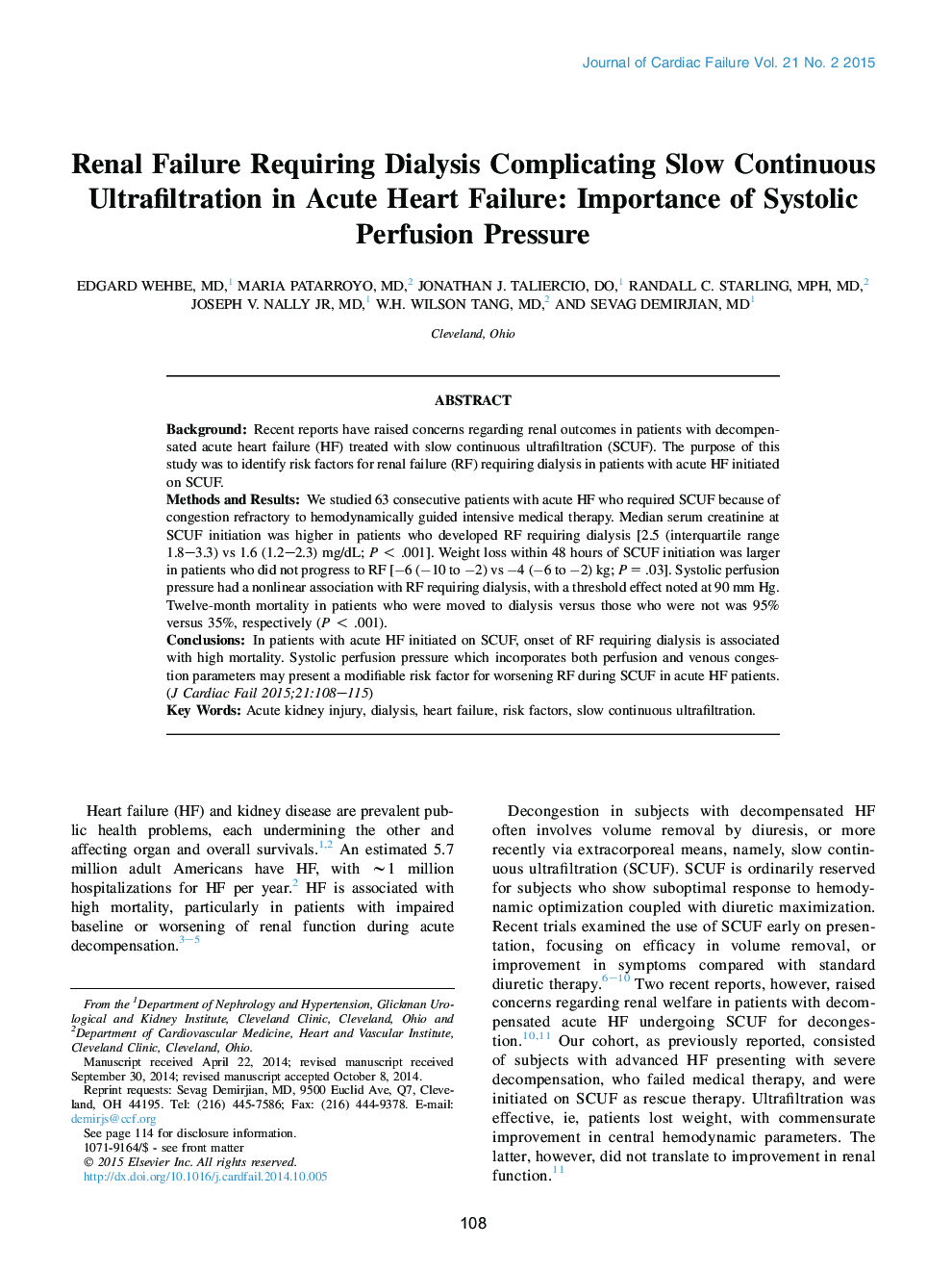| Article ID | Journal | Published Year | Pages | File Type |
|---|---|---|---|---|
| 2959057 | Journal of Cardiac Failure | 2015 | 8 Pages |
•Systolic perfusion pressure (mm Hg) = systolic pressure – central venous pressure.•Systolic perfusion pressure <90 mm Hg is associated with worsening renal failure.•Rescue ultrafiltration therapy is associated with high morbidity/mortality in HF.
BackgroundRecent reports have raised concerns regarding renal outcomes in patients with decompensated acute heart failure (HF) treated with slow continuous ultrafiltration (SCUF). The purpose of this study was to identify risk factors for renal failure (RF) requiring dialysis in patients with acute HF initiated on SCUF.Methods and ResultsWe studied 63 consecutive patients with acute HF who required SCUF because of congestion refractory to hemodynamically guided intensive medical therapy. Median serum creatinine at SCUF initiation was higher in patients who developed RF requiring dialysis [2.5 (interquartile range 1.8–3.3) vs 1.6 (1.2–2.3) mg/dL; P < .001]. Weight loss within 48 hours of SCUF initiation was larger in patients who did not progress to RF [−6 (−10 to −2) vs −4 (−6 to −2) kg; P = .03]. Systolic perfusion pressure had a nonlinear association with RF requiring dialysis, with a threshold effect noted at 90 mm Hg. Twelve-month mortality in patients who were moved to dialysis versus those who were not was 95% versus 35%, respectively (P < .001).ConclusionsIn patients with acute HF initiated on SCUF, onset of RF requiring dialysis is associated with high mortality. Systolic perfusion pressure which incorporates both perfusion and venous congestion parameters may present a modifiable risk factor for worsening RF during SCUF in acute HF patients.
